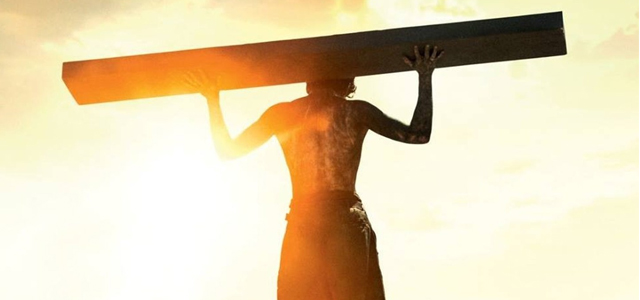(M) Jack O’Connell, Takamasa Ishihara, Garrett Hedlund
Louis Zamperini (Jack O’Connell) grew up as the son of Italian immigrants in Depression-era California. His brother helped lead him from a life of juvenile delinquency to a life as a national track star. After an heroic run at the 1936 Olympics, Zamperini looked forward to running in the Tokyo Olympics in 1940. However World War II broke out and dashed those dreams. He served in the South Pacific on a Lancaster Bomber during the war.
After a near-fatal plane crash, Zamperini and two other crewmen survive. They spend a harrowing 47 days in a life raft. After surviving their ocean ordeal, they are rescued by the Japanese navy and sent to a prisoner-of-war camp.
Zamperini is eventually sent to a camp run by tyrannical leader Watanabe; the prisoners call him “The Bird” (Takamasa Ishihara). Because of his world-wide notoriety as an Olympian, The Bird makes an example of Zamperini throughout his years in captivity. Through the torture and abuse, Zamperini and the other prisoners must figure out how to survive until the end of the war.
Zamperini lived an unbelievable, but compelling life. Julie Hildebrand’s epic biography of Zamperini’s life has been celebrated by many around the world. So much so that his story has been travelling around Hollywood since 1957, yet the right director or lead actor could not be found.
Angelina Jolie’s choice to helm the Unbroken project presented a daunting task for the movie-star-turned-director. But Jolie managed to work with Joel and Ethan Coen to formulate a script that would translate well to the big screen. Trying to capture all of his story in Unbroken was unrealistic, and Jolie has done an admirable job getting as much of Zamperini’s story into the one film. But the script cuts out much of the book’s finer details. Because of this lack of subtle nuances, the film starts in full throttle and never relinquishes it’s intensity. Jolie seems to miss some of the light and shade of Zamperini’s life, which could have made this film more compelling. That said, on the acting front, O’Connell and Ishihara give excellent performances in their on-screen adversarial roles. Domhnall Gleeson and Garrett Hedlund are well cast in their supporting roles, but do not excel beyond being supporting players.
Overall, Unbroken is an entertaining experience. Unlike Hildebrand’s biography of Zamperini, though, it is merely a celebration of the human spirit as opposed to a celebration of the Holy Spirit in Zamperini. If you have not read the book, read it. The film was good, but the source material is a richer telling of Zamperini’s transformative experience of the forgiveness and salvation provided by Jesus Christ. Hildebrand’s book was a joy to read and a true celebration of Jesus’ impact upon Zamperini.
With all of the difficulties and challenges he endured, Zamperini’s life is defined by the saving faith in Christ that he came to. Jolie doesn’t shy away from his acceptance of Christ but also doesn’t have it as the film’s centrepiece. As a result, she misses the true heart of his story. I would recommend Unbroken to most people, but you I more strongly recommend that you read the biography it is based on. Your enjoyment of Zamperini’s amazing life story will be richer for it.
What are the bigger questions to consider from this film?
- Why does suffering happen in the world? (Romans 5:3-5, John 16:33)
- How do people make it through traumatic situations like those depicted in Unbroken? (Romans 12:12, Philippians 4:6-7)
- How can Jesus make a difference in our lives? (Ephesians 2:1-10, John 3:16)
Russell Matthews works for City Bible Forum Sydney and is a film blogger













